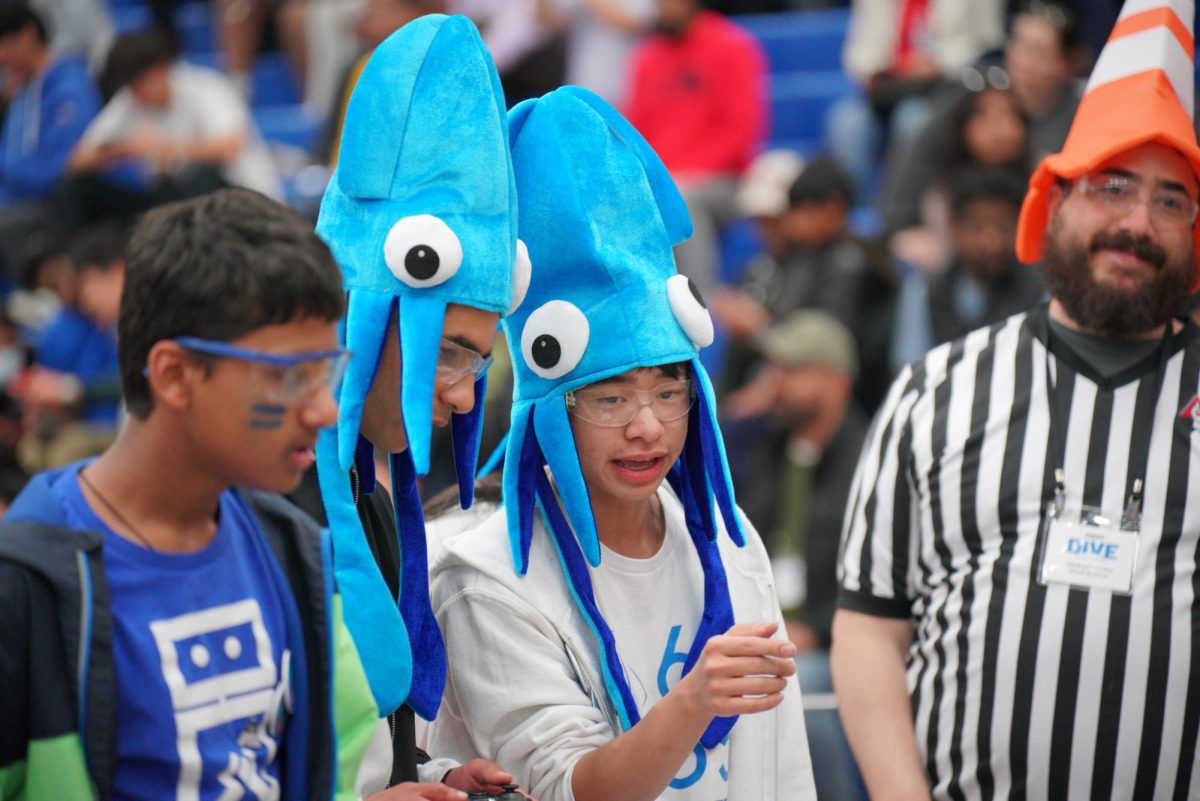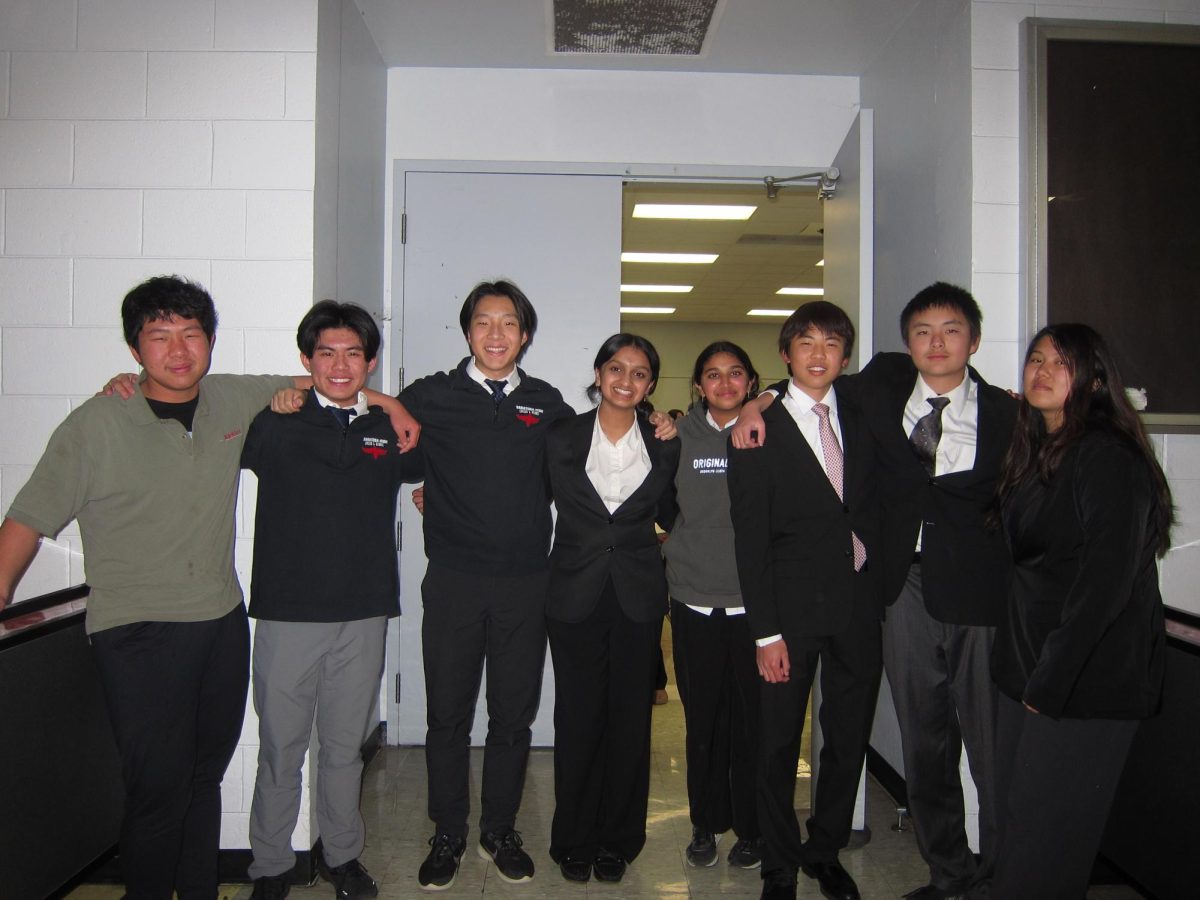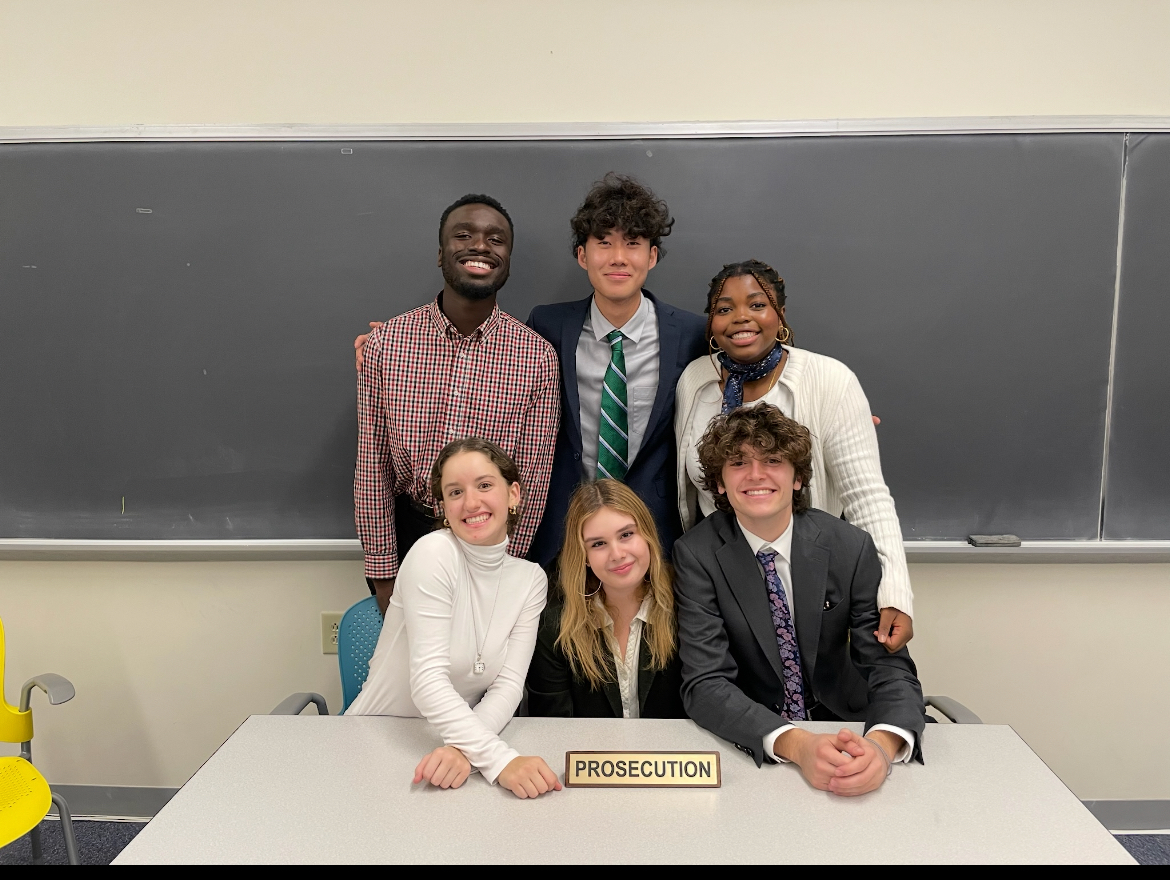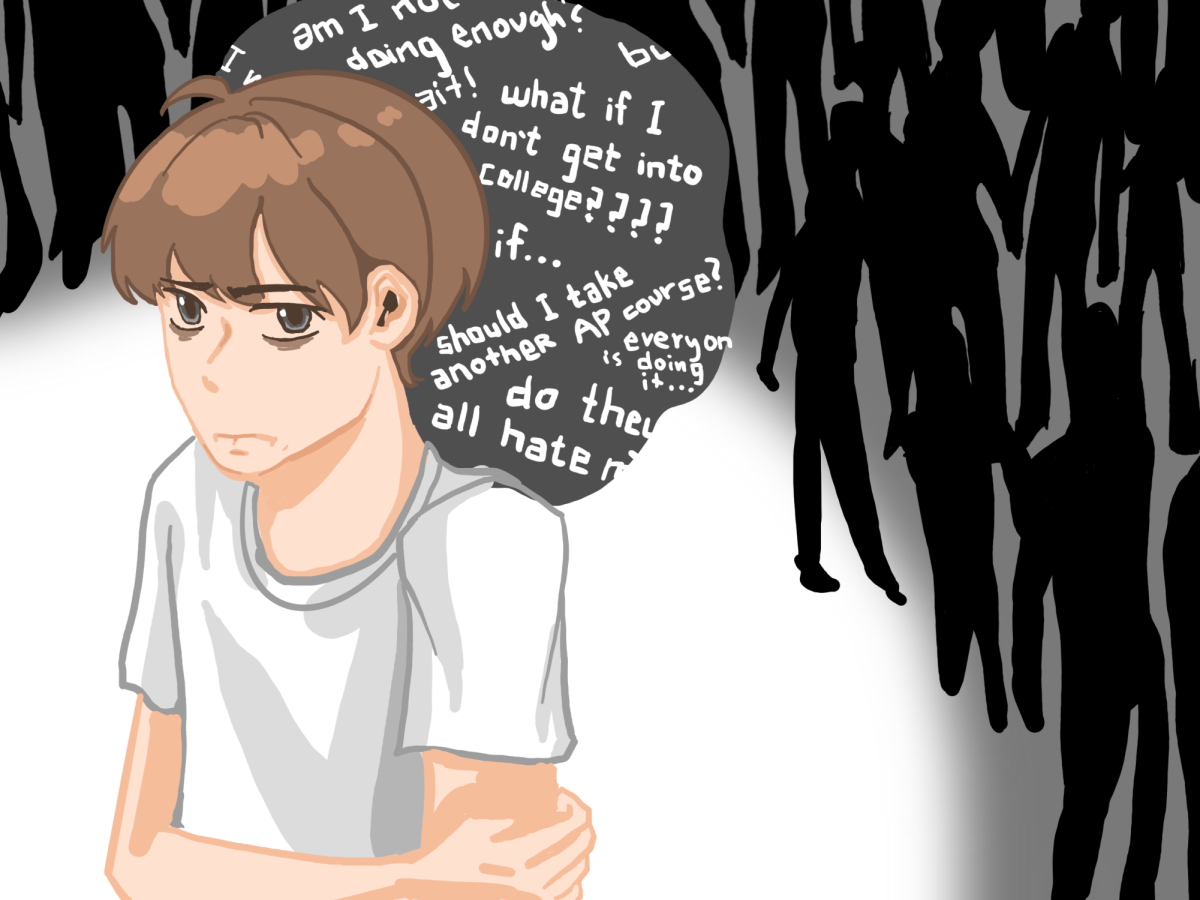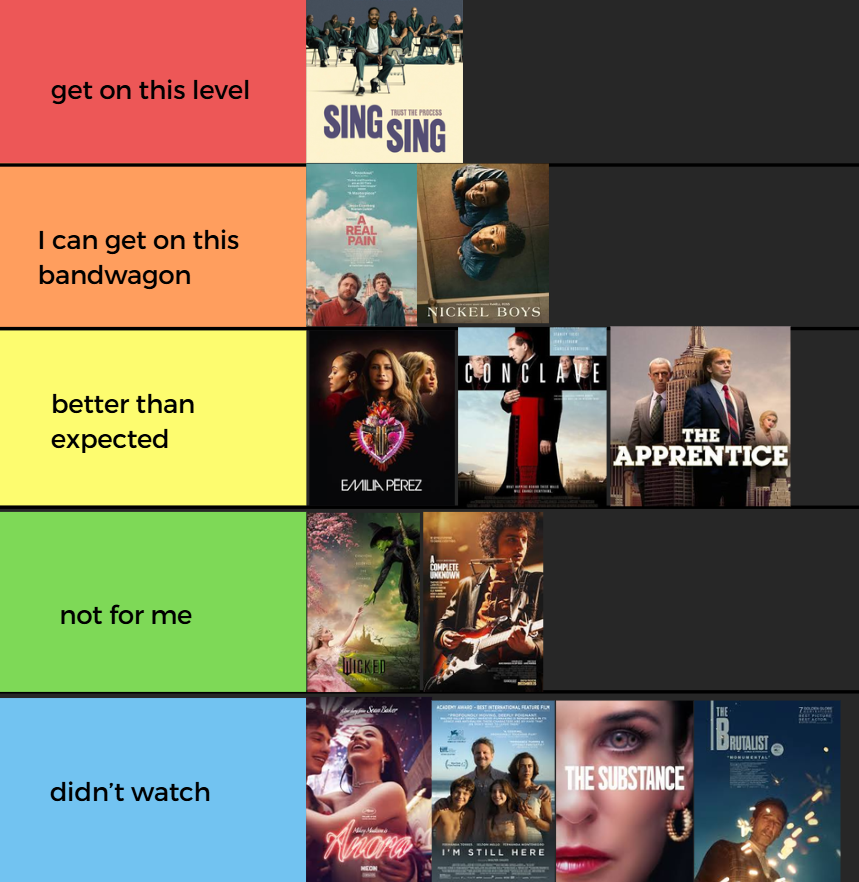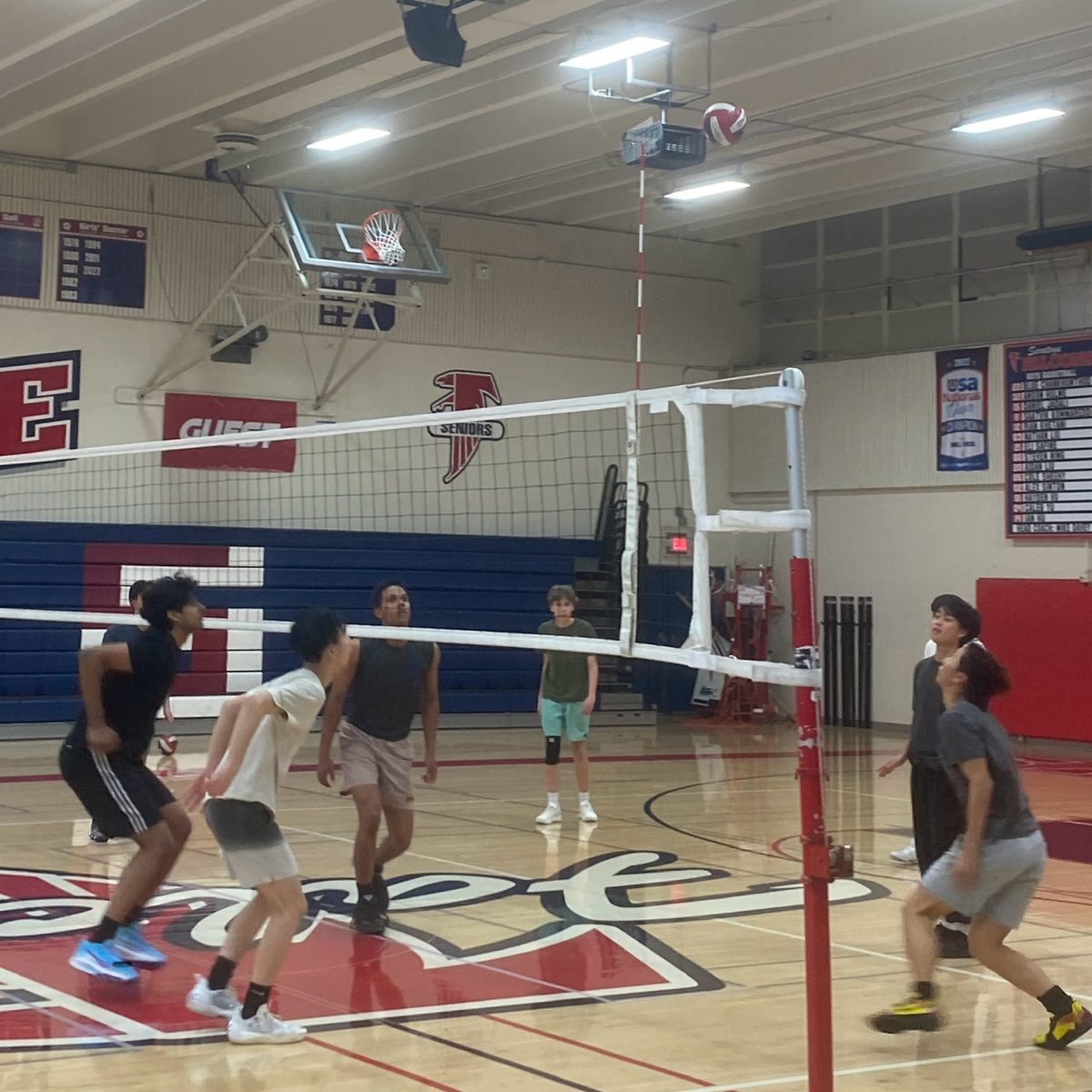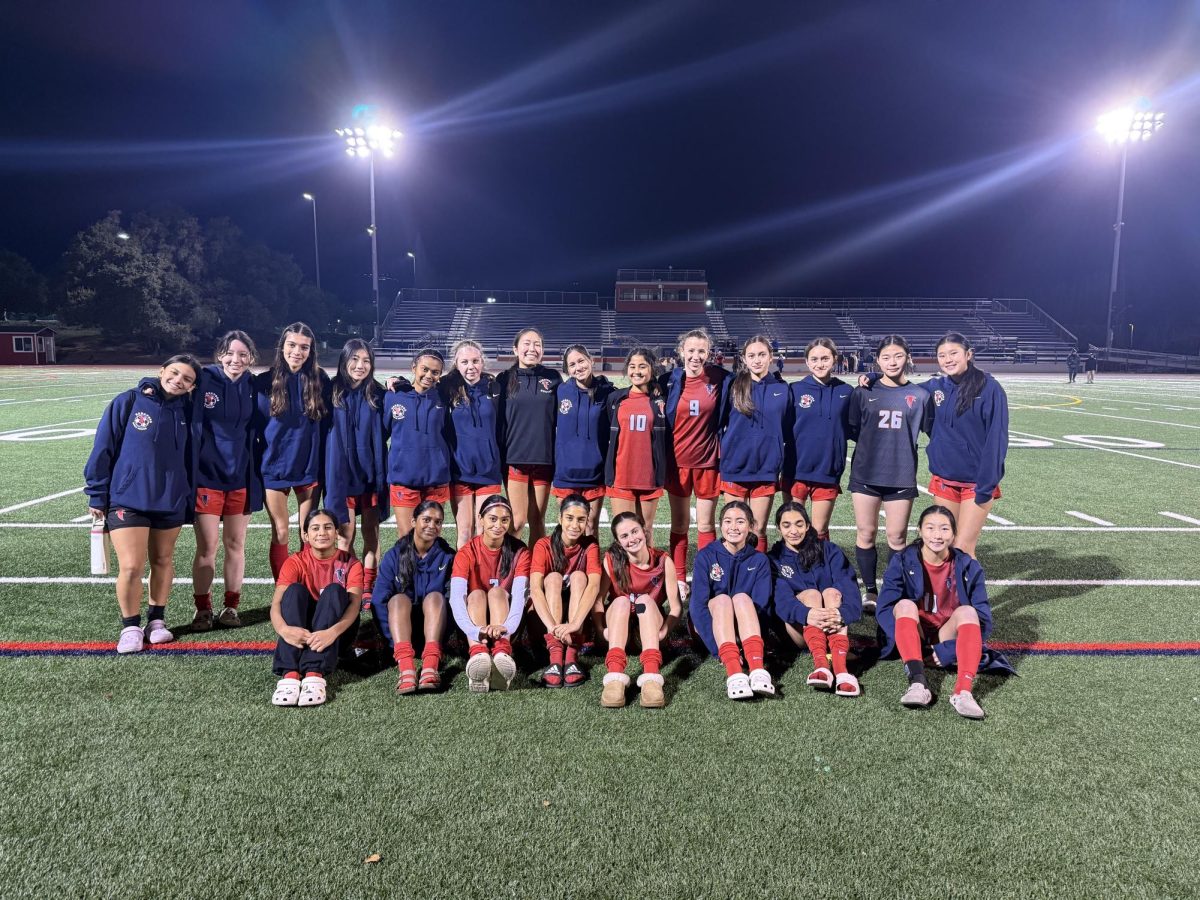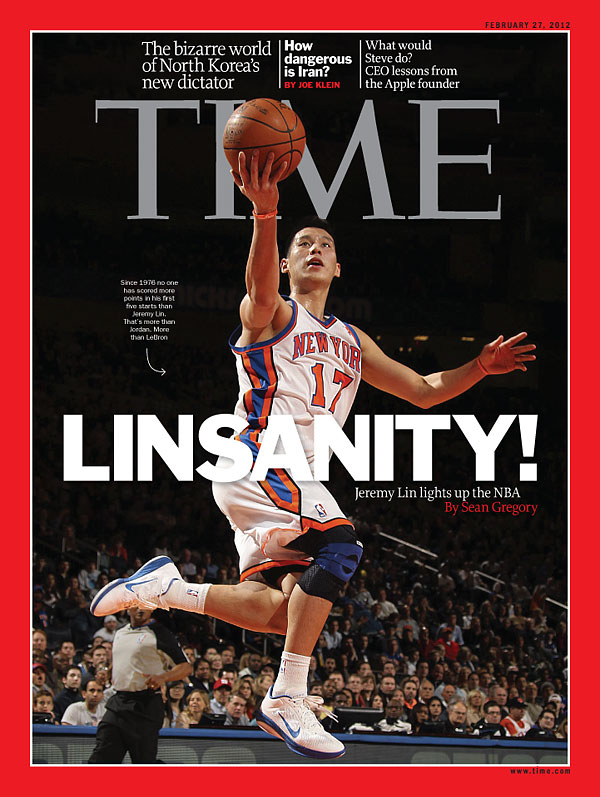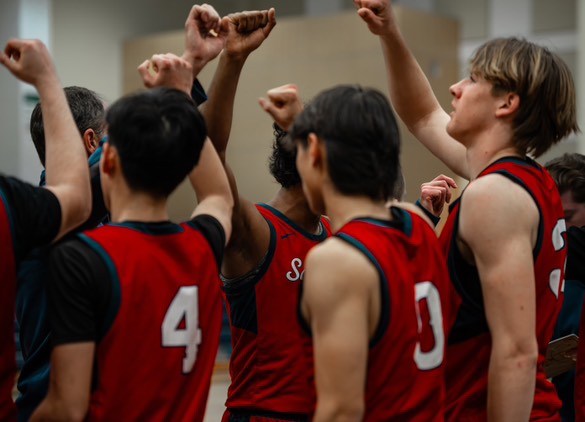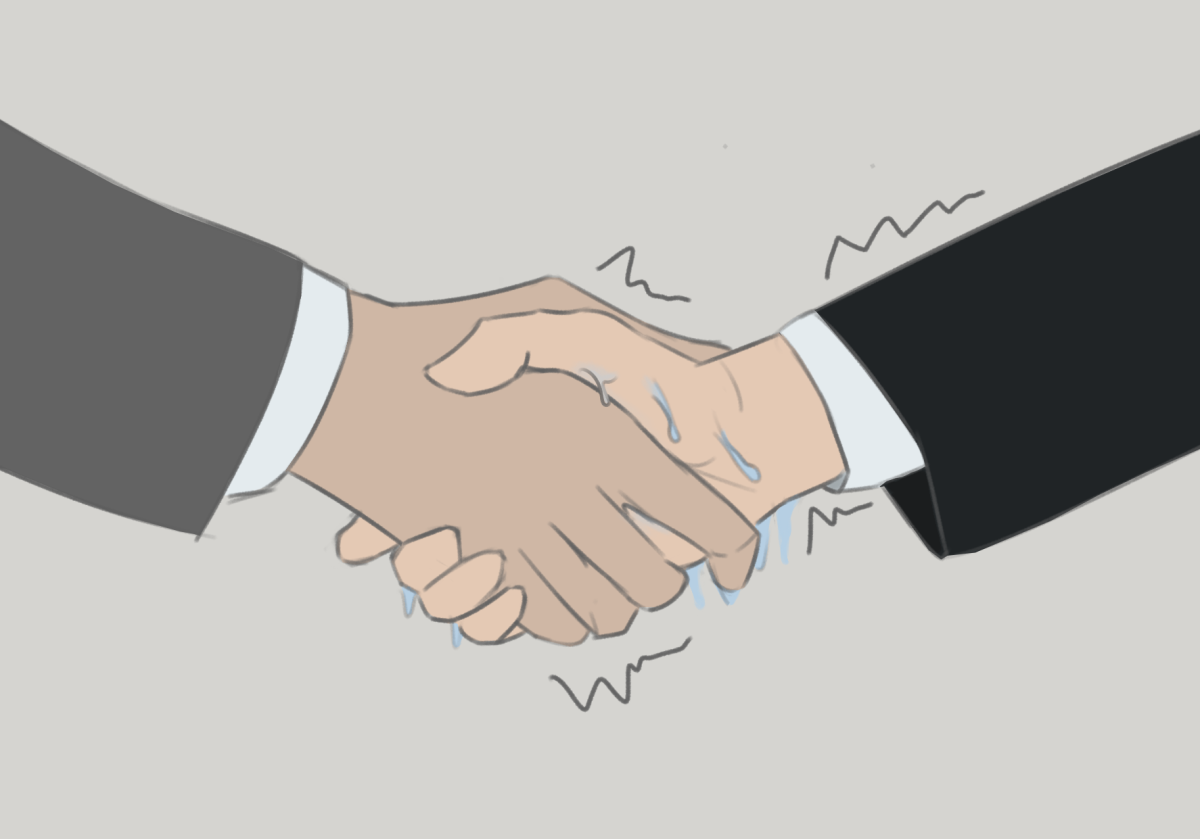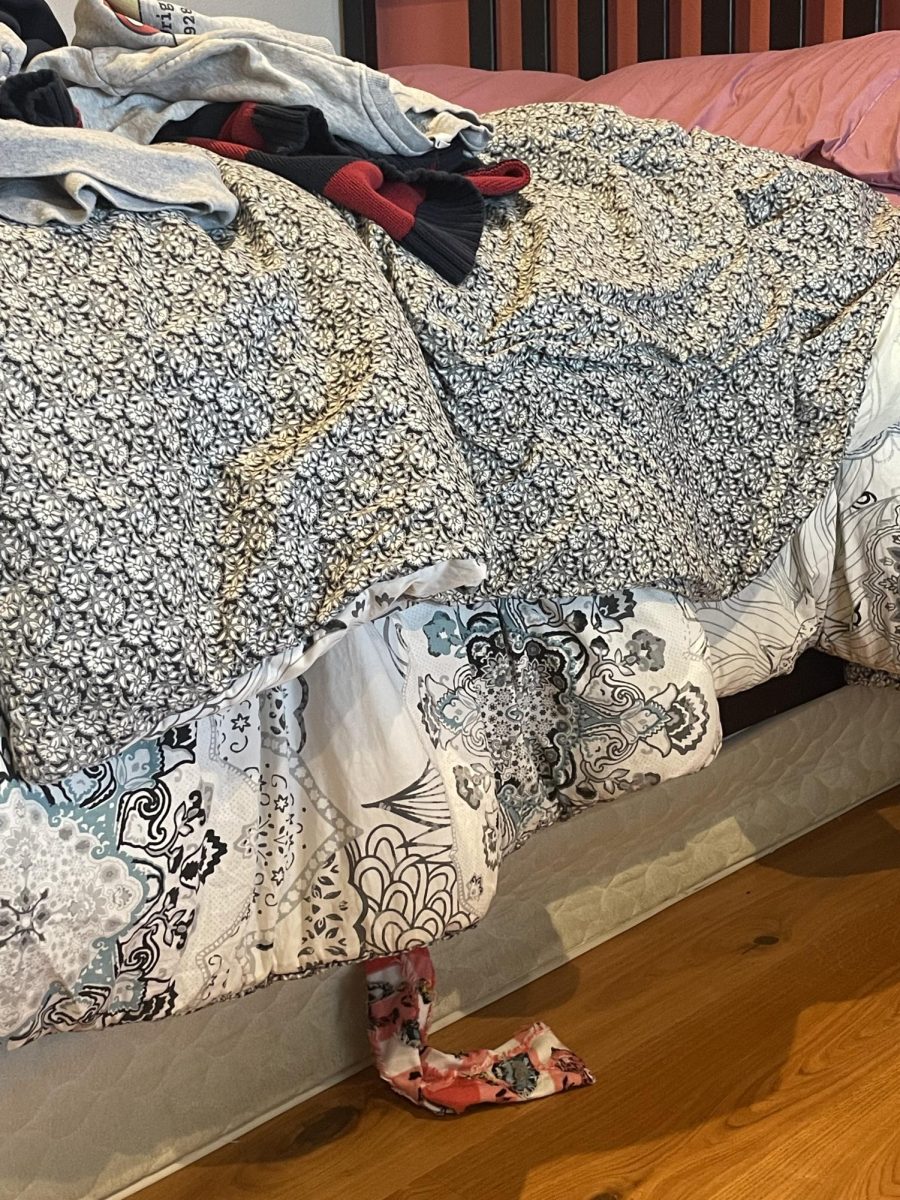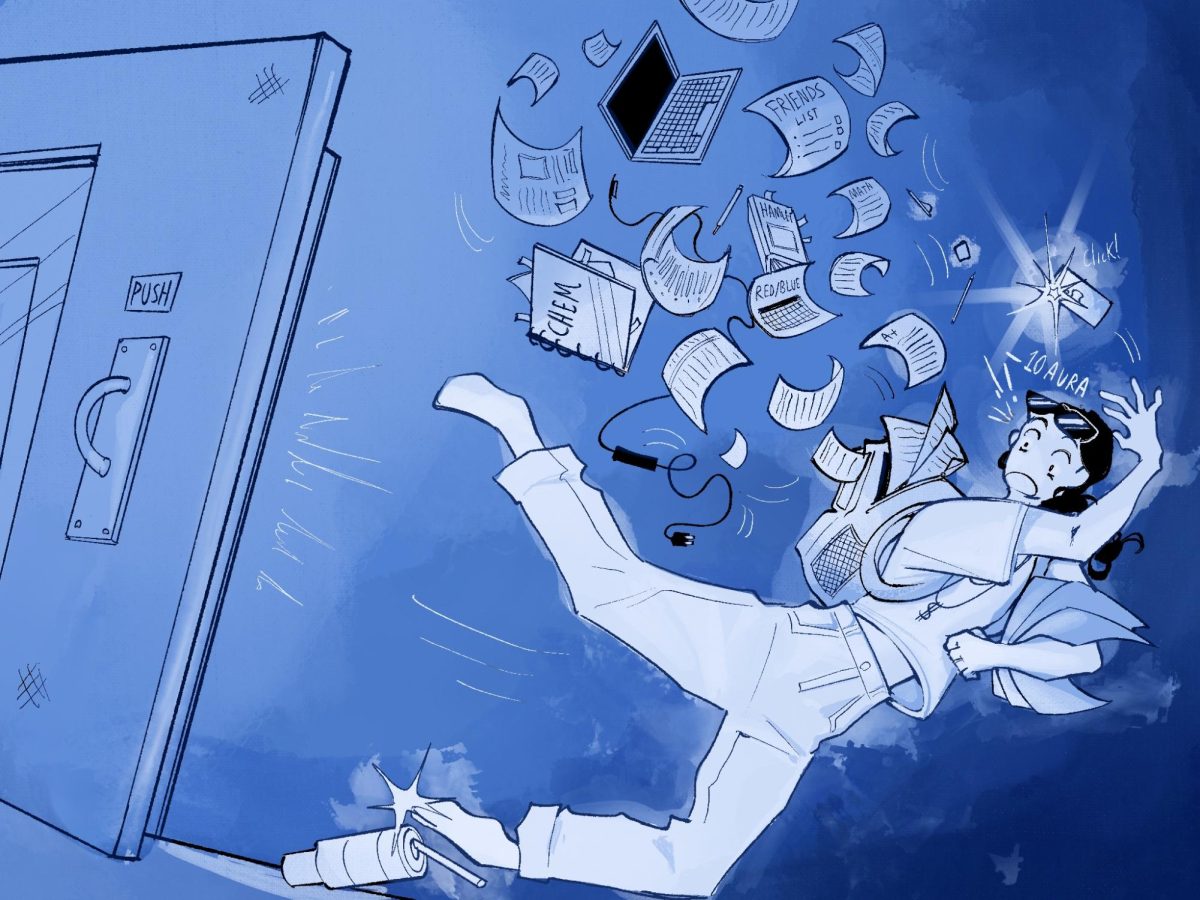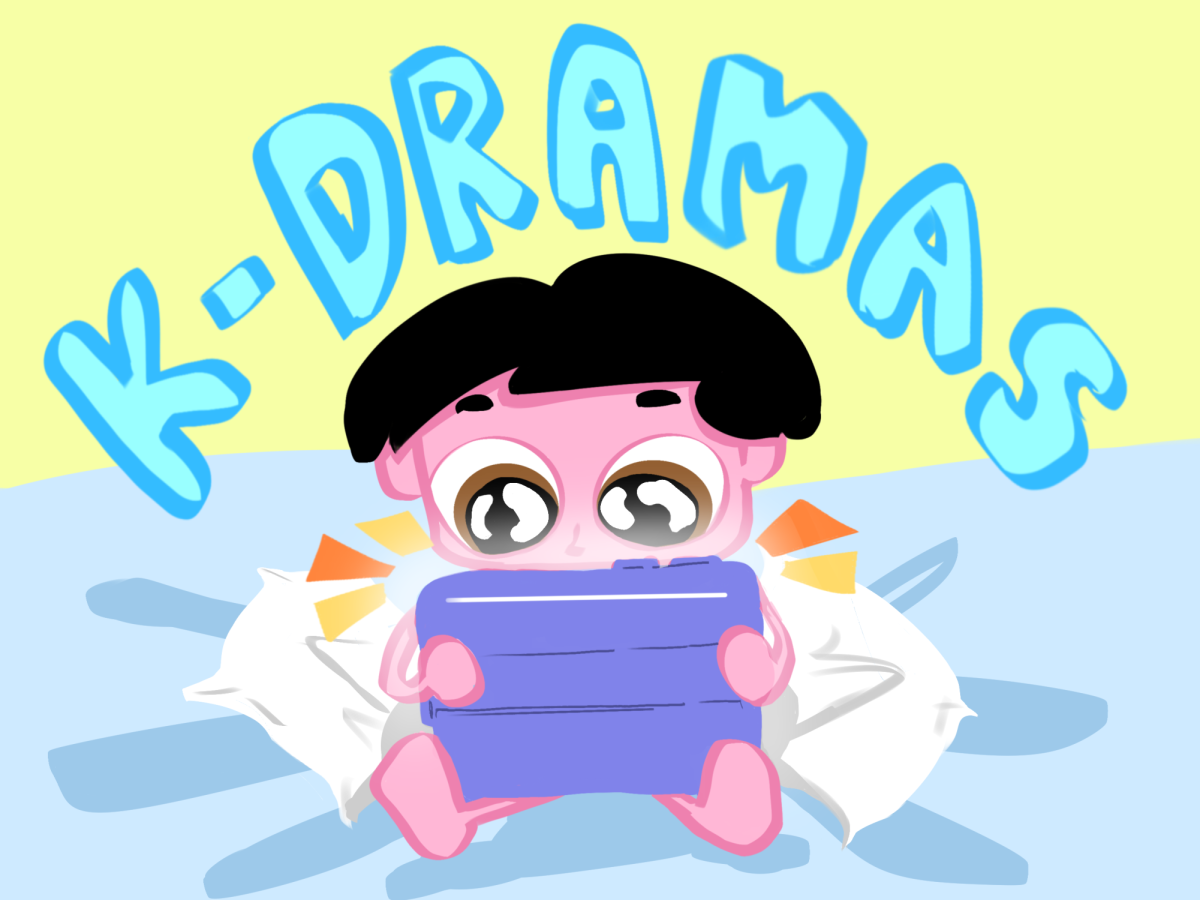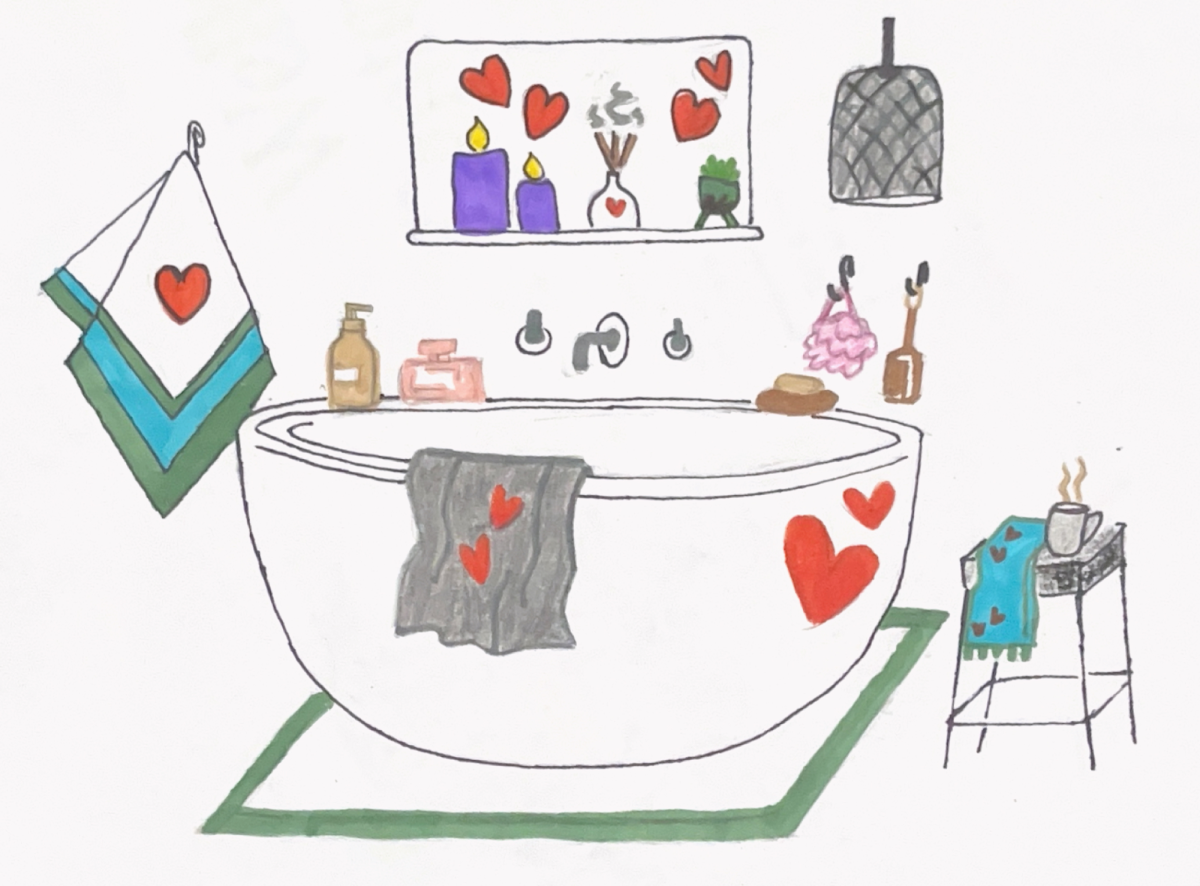Last regular-season match of the year. Qualification to CCS on the line. Last set. Score: 40-40. Junior Samik Pattanayak, playing alongside fellow junior Shrey Jain as part of Saratoga tennis’s no. 1 ranked doubles team, sized up his opposition across the court. Pattanayak and Jain had to win this point, and consequently the set and match, to send Saratoga to CCS. Pattanayak, though churning out a plethora of possibilities over how to serve, was calm, and unfazed by the occasion. He shrugged his shoulders, quickly stretched out his neck, and served. A couple minutes later, he and Jain won their match – and Saratoga headed to CCS.
However, Pattanayak has not always been capable of channeling this level of serenity while playing. His journey that has led to him now being able to play tennis at a high level did not always see him calm, unstressed, or unfazed by crucial moments. He had to develop a degree of mental fortitude before he could really consider himself a high-level tennis player.
Pattanayak has participated in tournaments in California, as well as across the United States, and has faced some of the country’s best players in his age group. To call him high-level definitely matches with the ability and experience he has.
Pattanayak said his first couple of years of tennis were quite different to his current approach. Playing with an intense coach, having parents who strongly and frequently pushed him to improve and play competitively, and living with a brother who was already playing at a very high level made Pattanyak’s initial years feel pressured. He elaborated that he loved the sport, but was not great at overcoming obstacles and recovering from setbacks.
Pattanayak, who is currently varsity tennis’s No. 2 singles player, said the most difficult part of playing tennis at the level he’s currently in, which includes state tournaments and matches against Division 1 college recruits, is its repetitiveness. No longer succumbing to the moment like he did in the past, the monotony and exhaust that results from playing long-spanning tennis matches affects more currently.
“Actions will occur over and over again while I’m playing. It can be frustrating and honestly very taxing,” Pattanayak said. “Staying focused and maintaining full composure while going up for yet another forehand return or backhand smash at the same level that I did my previous one is super difficult.”
He described how matches often feel endless, affecting his mental state while playing.
“Games, especially tight matches with a similar caliber of opponent, sap me. Telling my brain to continue performing at my best level and not letting complacency slip through at key moments is incredibly difficult,” Pattanayak said. “Tennis is a battle with my mind and myself as much as it’s a match with a guy on the opposite side of the court.”
Junior Avik Belenje, who plays No. 2 doubles on the varsity badminton team, also described the mind battles that arose more frequently as he began to ascend up the ranks in his sport.
Belenje said he believes badminton’s test of his endurance — both physical and mental — has caused him the most setbacks. He also said a sense of overbearing responsibility often overwhelms him in the middle of the matches, leading him to occasionally overthink before shots or react wrongly to an opponent’s serves.
“When shots keep coming back to my side relentlessly, one after another, the dread that comes with having barely reached one and knowing there’s going to be another which requires a sprint across the court is a difficult one to shake off,” Belenje said. “Additionally, when I am getting peppered and have to be on the back foot, my mental approach has to change, and I begin to overthink. The unrelenting nature badminton can take is an obstacle that’s the hardest to overcome.”
Belenje said success requires a sense of mental fortitude that takes a lot to obtain, and even more to maintain.
“Badminton’s ebbs and flows require me to adopt different strategies, whether it be to attack or play more defensively,” Belenje said. “The variations between styles and how they affect the gamestate play a huge role on my mentality over the course of a match. Whether it be working my way out of a huge hole, or hanging on to a tiny lead, my mind and my ability to adapt are always tested, and that’s one of the biggest difficulties badminton poses.”
Though Belenje does not plan to pursue badminton at a serious capacity once he graduates from high school, he has still developed an attachment to the sport that sees him emotional both during sensational victories or gutting losses. He described his connection to the game as intangible, unquantifiable.
Despite mental and game-specific challenges the pair abundantly face, Pattanayak and Belenje both said the opportunity to continue their journeys in tennis and badminton respectively at a higher caliber was worth the drawbacks.
“We’re in a battle with ourselves most of the time, but the love of the game, tennis in my case, fuels me toward overcoming the hurdles that I face,” Pattanayak said.

